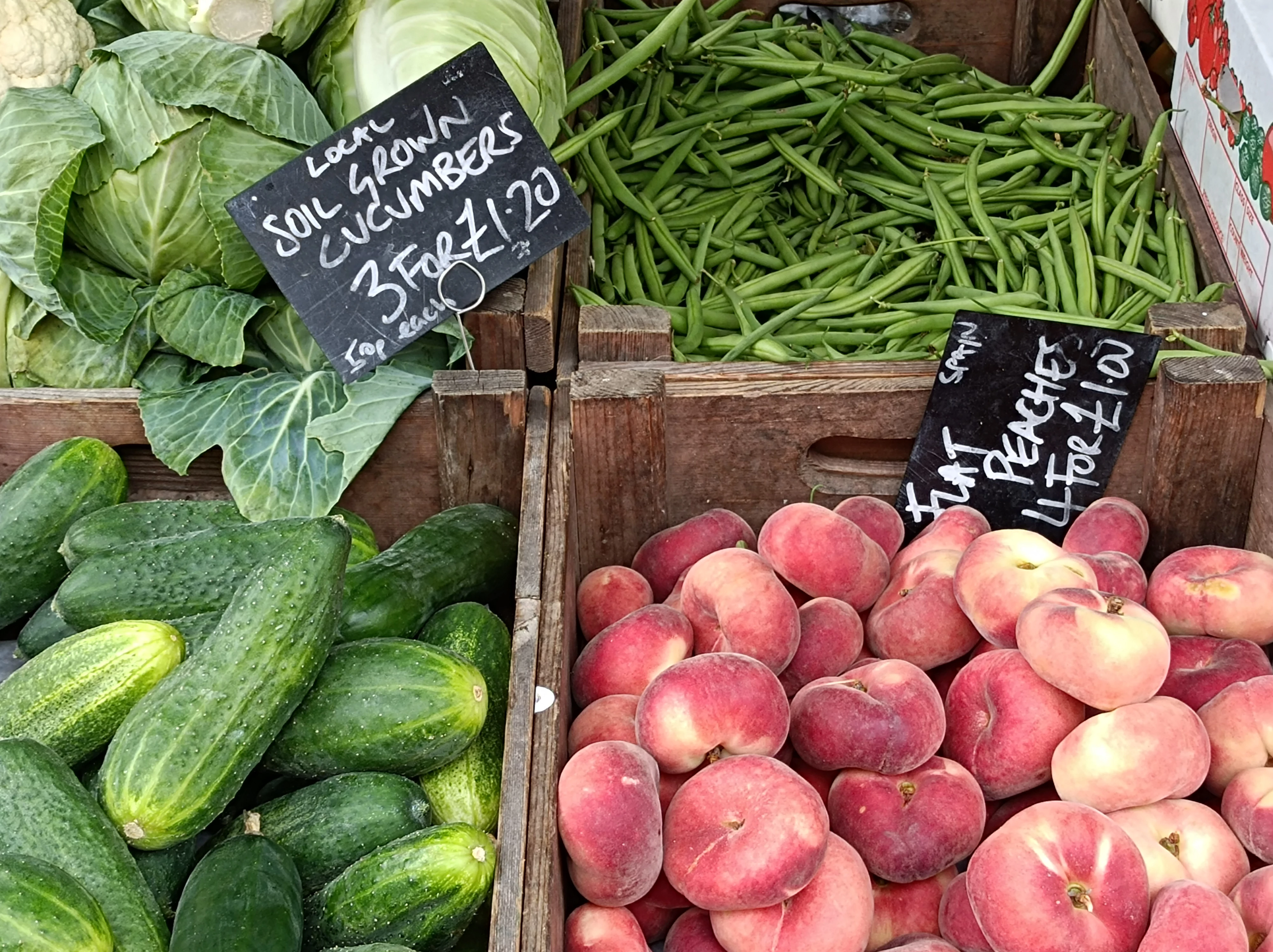
Collaborative effort to curb Leeds’ food emissions
A new collaboration which aims to reduce the city’s carbon footprint through food has been announced by Leeds City Council, the University of Leeds and FoodWise Leeds. Around 10 per cent of the UK’s carbon emissions can be linked to the food we eat or waste, with every part of the journey from farm to fork contributing to its overall environmental impact.
The partnership of organisations is working collaboratively on a number of new projects designed to tackle climate change by making it easier for residents and organisations to make informed food choices, support more sustainable food production, and reduce food waste.
Studies show that our collective health and the health of the planet would improve if we ate a balanced diet consistent with the NHS-recommended Eatwell guidelines. For some people, this may mean eating more fruit and vegetables and less meat.
The council’s school meals provider, Catering Leeds, is already trialling the new tool to review its menus and suppliers to explore how to become more sustainable and support the local authority’s climate targets. Last year, Leeds City Council set out its ambition to halve the carbon footprint of the average meal it serves by 2030.
Meanwhile, FoodWise Leeds, a citywide partnership with representatives from third sector, academia, businesses and the council—has used the calculator’s findings to show the impact of simple, nutritious, and affordable recipes published on its new online Recipe Hub.
As well as developing the carbon calculator, the University of Leeds researchers have also used their research to engage young people in local primary schools through special food data science lessons, workshops, and even creating an interactive and educational ‘Planet Plates’ game.
Councillor Helen Hayden, executive member for infrastructure and climate at Leeds City Council said: “The food we eat is responsible for a significant proportion of our carbon footprint, so we believe it is important to lead by example to reduce the impact of the food we serve, whilst empowering others to do the same.
“This new collaboration with the University of Leeds and Food Wise is a brilliant example of how working together can help us realise our ambitions for a healthier and greener city.”
Alexandra Dalton, a former data scientist at Leeds Institute for Data Analytics (LIDA) and the Consumer Data Research Centre: “When we buy food, we don’t often think about where it has come from, or the environmental impact of the food supply chain.
“While working with Leeds primary schools and Leeds City Council, we have created resources that help educate pupils about the impact of their food choices and encourage them to support more sustainable food behaviours.”
Sonja Woodcock, sustainable food places coordinator at Food Wise Leeds said: “I’m really excited to be building on our existing partnership with the University of Leeds and Leeds City Council with this new collaboration.”
By Mark Adair – Correspondent, Bdaily
- Add me on LinkedIn and Twitter to keep up to date
- And follow Bdaily on Facebook, Twitter and LinkedIn
- Submit press releases to editor@bdaily.co.uk for consideration
Looking to promote your product/service to SME businesses in your region? Find out how Bdaily can help →
Enjoy the read? Get Bdaily delivered.
Sign up to receive our popular Yorkshire & The Humber morning email for free.








 Raising the bar to boost North East growth
Raising the bar to boost North East growth
 Navigating the messy middle of business growth
Navigating the messy middle of business growth
 We must make it easier to hire young people
We must make it easier to hire young people
 Why community-based care is key to NHS' future
Why community-based care is key to NHS' future
 Culture, confidence and creativity in the North East
Culture, confidence and creativity in the North East
 Putting in the groundwork to boost skills
Putting in the groundwork to boost skills
 £100,000 milestone drives forward STEM work
£100,000 milestone drives forward STEM work
 Restoring confidence for the economic road ahead
Restoring confidence for the economic road ahead
 Ready to scale? Buy-and-build offers opportunity
Ready to scale? Buy-and-build offers opportunity
 When will our regional economy grow?
When will our regional economy grow?
 Creating a thriving North East construction sector
Creating a thriving North East construction sector
 Why investors are still backing the North East
Why investors are still backing the North East